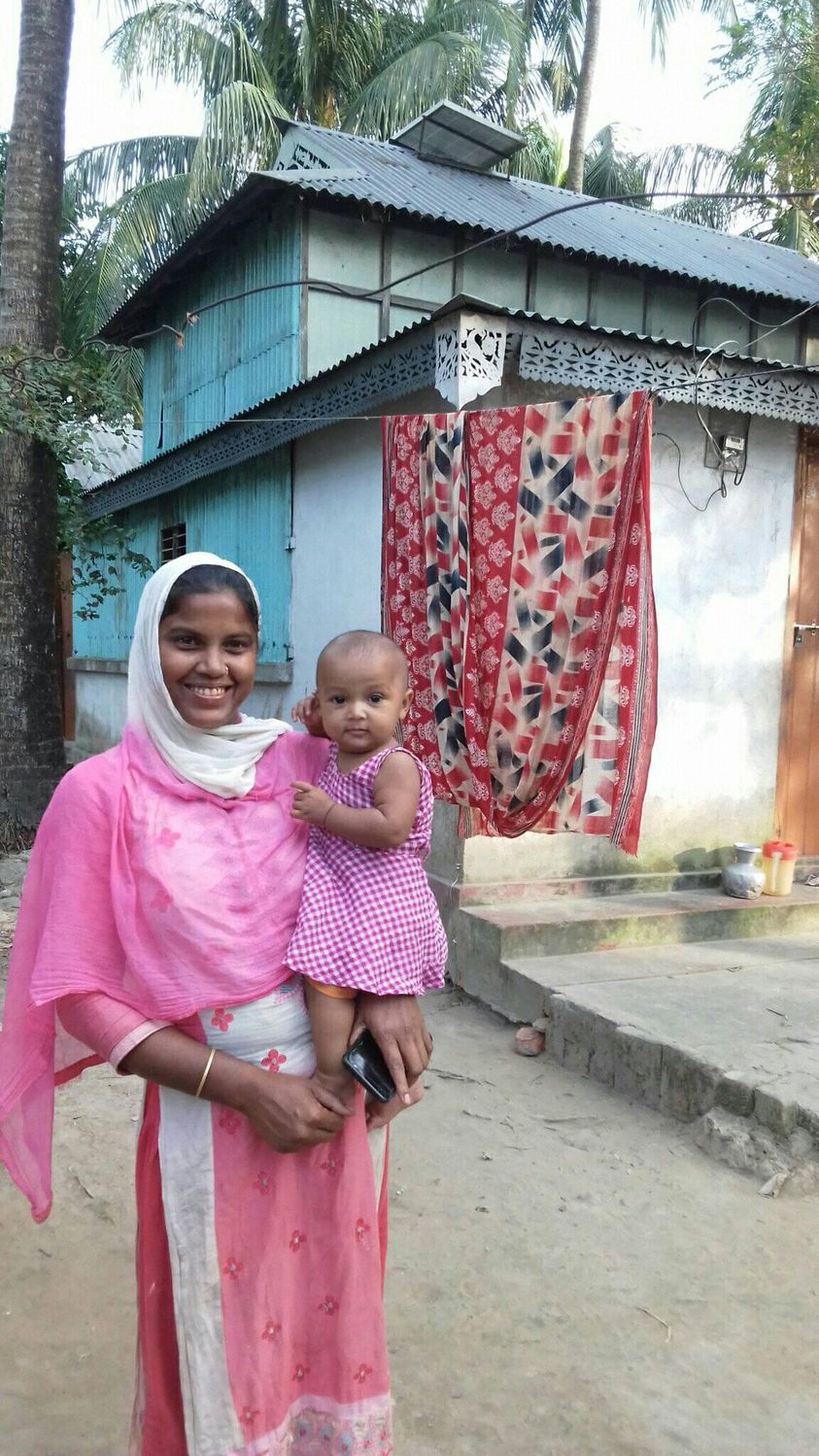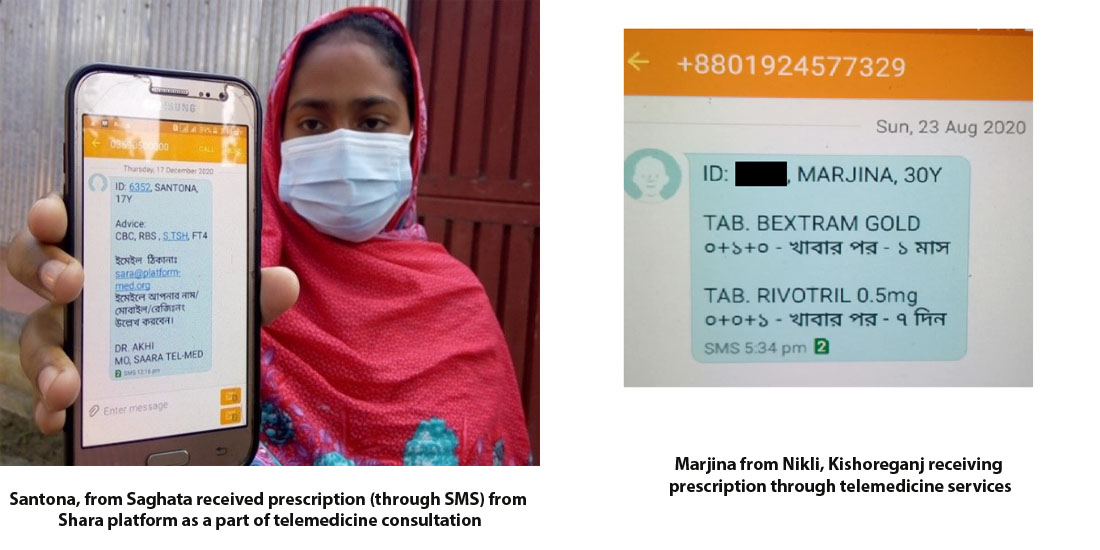
Inequality in healthcare exists in all socioeconomic structures; some people will avail better healthcare services throughout their lives than others simply because of their affordability, accessibility, and presence of better healthcare services and infrastructure. Reflecting back on the past one year of the devastating pandemic of COVID-19, it was observed that none of the privileges matter while seeking and receiving healthcare services. The movement restriction, heightened fear of contracting COVID-19 while visiting hospitals or clinics, lack of available healthcare providers or beds due to rising numbers of COVID-19 affected patients and other obstacles challenged the healthcare seeking behaviour for the mass in Bangladesh. Receiving healthcare services is especially difficult for the rural population due to poverty, inadequate number of staff and healthcare facilities, transport scarcity, and often stigma; even more so for the people who live in remote areas, for instance deep haor or remote char.
Given the context, the Government of Bangladesh has opted for telemedicine services to provide healthcare advice to the people in need during the pandemic. Many private companies also started exclusive telemedicine services during the pandemic.
USAID’s SHOUHARDO III, implemented by CARE Bangladesh has been supporting and advocating for telemedicine services in Haor and Char program areas to support the poor and extreme poor people in getting health advice through phones. Started in October 2020, this advocacy activity is twofold- firstly it involves advocacy sessions with the central (in Dhaka) and the local (in districts and villages) DGHS (Directorate General of Health Services) officials, along with Upazila Health Complex and Community Clinic sessions. A total of 80 advocacy sessions with different healthcare providers and relevant stakeholders were held since October 2020. Secondly, as a part of community mobilization, SHOUHARDO III selected group leaders in each of the 947 program villages disseminate phone numbers of Community HealthCare Provider (CHCP) and Upazila Health and Family Planning officers (UHFPO) of those respective village and districts. SHOUHARDO III has also been advocating the beneficiaries to use the Shastho Batayon (16263) helpline number provided by central DGHS to seek health related information. SHOUHARDO III oriented the community about different hotline facilities and service providers’ numbers so the beneficiaries can easily connect with the service providers from remote location at any time and day. SHOUHARDO III is also advocating for usage of telemedicine services by a private company (Medical & Dental Society, Bangladesh and Charity organization of BUETian) based platform called SHARA (09612300900). These numbers were saved in the mobile of around 10,000 program participants of SHOUHARO III to call the healthcare providers and receive advice free of charge. After a consultation of 15-30 minutes, they receive the prescription and relevant health advice through a text message on their mobile phone.
This advocacy activity is part of SHOUHARDO III’s sustainable approach to improve the lives of the poor. The numbers saved in the program participants’ mobile phone will help them seek healthcare beyond the program timeframe. Khairunnesa from Baniachang, Habiganj has been seeking healthcare services for herself and her infant through telemedicine services for one year now. During the lockdown, any form of movement was difficult; she also feared of contracting COVID-19 for herself and her young child. Using telemedicine services was a blessing for her. She shared, “We can get healthcare advice in Noyahati (Village) through phone now...sitting inside our home. It has minimized a lot of challenges for me. My family and I are doing a lot better now as we can get health advice from our village doctors in a short amount of time and without the hassle of commute during the pandemic.”
Santona from Saghata, Gaibandha used the services provided by SHARA: “I have been suffering from fever for some days and called the SHARA number. The doctor patiently listened to my issues and sent a prescription through SMS within 30 minutes. It was really helpful for me as I was weak and couldn’t commute to the nearby clinic”.
